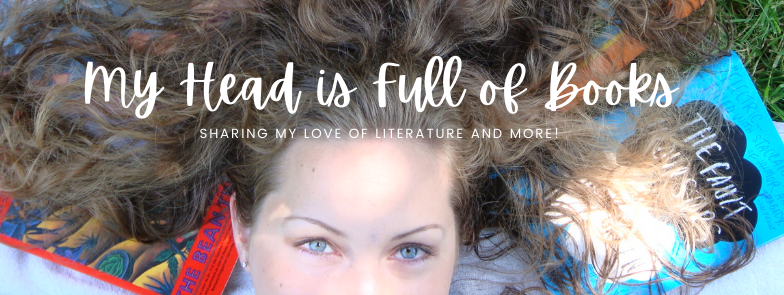Book Beginnings quote:
You know what's amazing? That we become upset when a politician cheats on his wife. Remember Bill Clinton? Or would you like to discuss other of our country's leaders? And every time we, as a society, react with distress and disappointment, my heart sings a little. That sense of collective indignation would not have happened had we lived in ancient Rome.Friday56 quote:
Every account of the English king Henry VIII's life should start with the same basic question. How hot was Henry VIII? That is a private joke that is only funny to me. Every biography you read about Henry VIII and his wives begins with a line like "It's essential to begin our account of Henry VIII by questioning the impact of religion upon the average person in sixteenth-century England" or "We must begin our account of the life of Anne Boleyn by asking the question that has plagued scholars for centuries... I am, however, able to answer my own question--the first question posed in this chapter--the answer is: smoking. Smoking hot.Summary: These are the worst of the worst of romantic breakups throughout history. From being put to death, to imprisonment, to receiving a lock of your x-lover's bloody pubic hair these thirteen couples really take the cake for breaking up badly. "With wit and considerable empathy, Wright digs deep into the archives to bring these terrible breakups to life. She educates, entertains, and puts your own bad breakup conduct into perspective" (From the book jacket).
Review: The day before the current quarantine, I perused the library shelves for books on my reading list and ended up checking out nine books. It Ended Badly was one of them, though I couldn't remember why I even had it on my TBR list. I quickly read seven of the books, setting aside this book and one other, thinking they weren't for me but after making a stray comment to that effect on a post, Rummanah Aasi over at Books in the Spotlight encouraged me to give it a try, saying that it was excellent narrative nonfiction and her high school students enjoy reading it.
I'm still in recovery from my reading hangover of Lonesome Dove so I decided to pick up a book which was very different. It Ended Badly fit the bill. No bang-bang shoot 'em up, or so I thought. First, I should say, of the thirteen couples I had only heard of a few of the scorned lovers, and of those only two of the couples I'd heard of both partners in the pair/trio: Henry VIII and Anne Boleyn//Debbie Reynolds, Eddie Fisher, and Elizabeth Taylor. The rest like Nero, Oscar Wilde, Norman Mailer I had previously only heard a bit about the one person. So in addition to learning the sorted details of their breakup I learned quite a bit about people and historical figures.
While learning all the sorted details of the breakups was fun, what made It Ended Badly a fun read was the editorial tone taken by Jennifer Wright. She'd done her homework but she didn't come across and a snobby expert. In fact the opposite was true. She made little comments and snarks throughout her writing that simply cracked me up. You see a bit of that in the page 56 quote about Henry VIII being hot and the book beginning quote where she comments that her heart sings when people of today get upset with politicians when they have affairs. (The books was published in 2015, so she didn't have a chance to make a swipe at Trump.) I found myself wishing that I had listened to the audiobook so I could hear how her sarcastic and snarky comments were handled in that format, but then I would have missed all the funny photos and illustrations with her aside comments attached.
I didn't read this book carefully since I was just reading it for fun but I think it has great potential as an addition to a high school library collection if any teacher requires that students read narrative nonfiction. I suspect this one would become very popular with teen readers, as it should with adults, too. Jennifer Wright even comments on page 195 that she thinks it would be a cool teacher that buys this book for their students. Ha!
Thanks Rummanah for the recommendation!
-Anne
















































